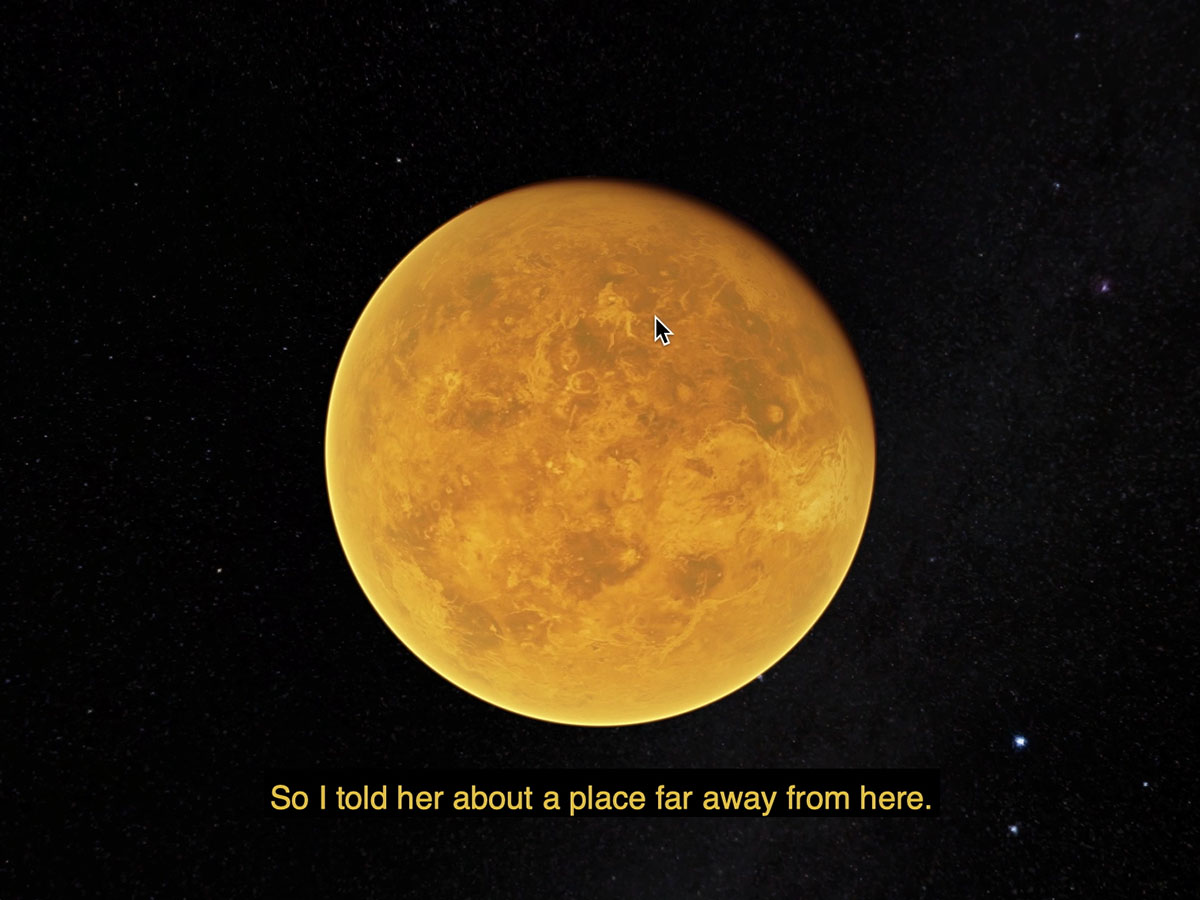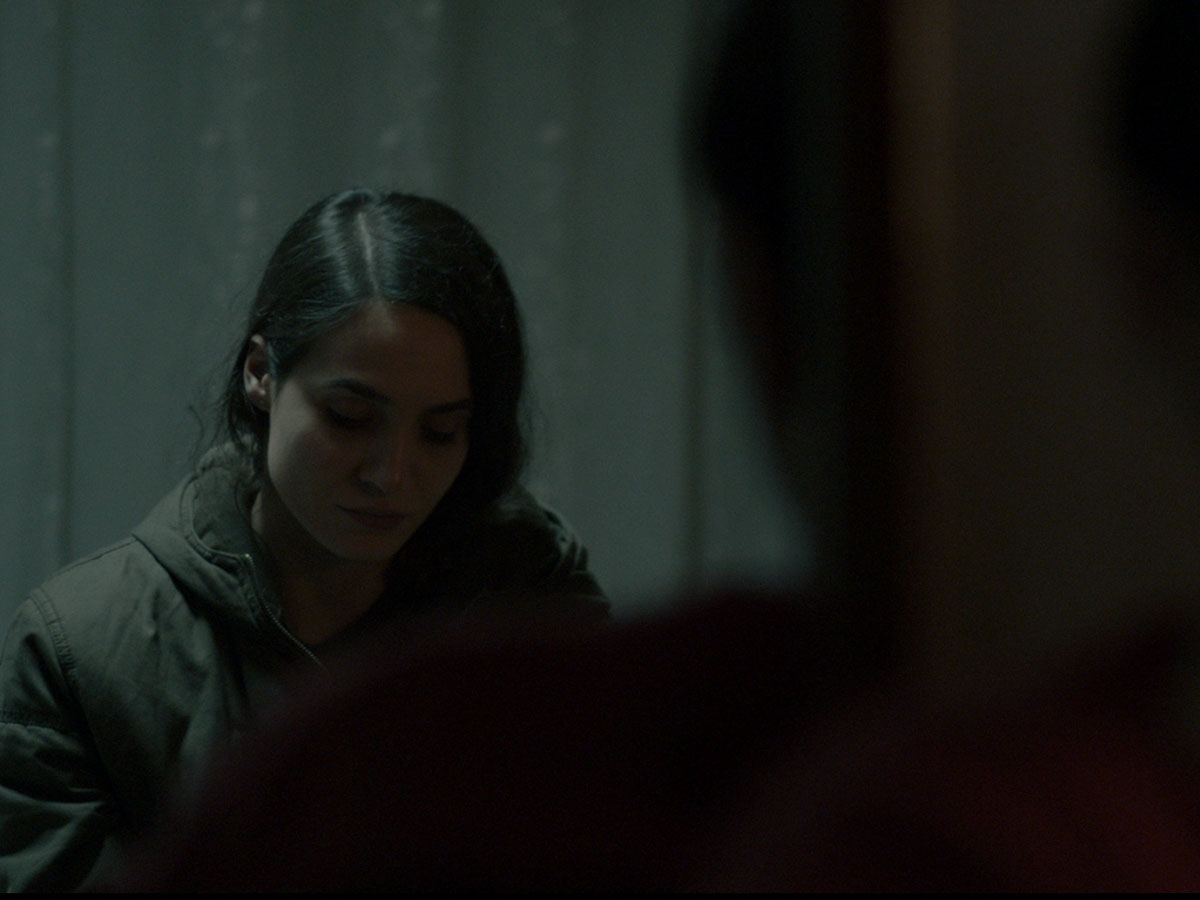
she asked me where i was from
Drawing on digital memories and using online tools such as Google Maps, Aulona Fetahaj reflects on how it feels to be the child of refugees in the digital age.
There’s too much data in the world right now. Take Google Street View, for instance. It’s all there, all free, all you have to do is move a pin and you’re in front of someone’s family house—they don’t even have to invite you over. That is, ignoring that you probably wouldn’t go even if these people did invite you, get to know them, and see how they ended up in Ghent from Kosovo, of all places.
Except that Belgian-Kosovar Aulona Fetahaj’s she asked me where i was from proves to you that it’s worth the detour. This planet is smaller than you want to believe. This particular neighbor was brought here by her family to escape their neighbor from far away. After what she’s been through, the least you can do is be attentive. It doesn’t take much, don’t worry—the filmmaker will do that Street View navigation for you, in desktop documentary format. All you have to do is wait, watch, and be ready for something occasionally emotionally devastating. Like never feeling at home. Like remembering that time she didn’t dare take the family’s food to school, trying to fit in with the other kids. Like finding out from electoral polls that one in five Belgians doesn’t want foreigners around.
The story builds slowly and elliptically in the filmmaker’s spontaneous exploration, using digital visualization tools and the personal photo archive on her Mac. There is the bulk of automatically named .jpg files from a wedding. Everyone always goes back to their hometown for weddings. Some of these photos have a sort of tactility to them. Someone took care to put them in a frame, or else they, by themselves, have that power – the very easy-to-guess story behind the image draws you into the frame until it’s three-dimensional and surrounds you. An Eastern European village house, destroyed by a shell projectile, testament to the dissolution of Yugoslavia. An unspoken answer to “Where are you from?”, one that is hard to formulate in polite company. But it’s crucial. It’s not hard to tell why anyone would prefer being uprooted and despised for many decades to remaining in place. Photos taken a few years afterward, back in Kosovo, capture a slumber party with kids, “in houses they called ours”.
It’s a cruel joke that this troubled family found its place in the hospitality sector, catering to other people’s magic holiday moments, having their fun, and all the while ignoring the humans that make it possible – remember how tourism used to be about going out of your comfort zone and discovering the unfamiliar? Though shorter than thirty minutes, the film is rich in such tiny revelations. The text unfolds, pacing through the photos, as a single line of subtitles for the first part of the film, but in a less shape-shifting scene toward the end, the screen is split between Fetahaj’s webcam and a textbox she is editing: “Just like the tourists, I am/ Sleeping in soft beds my mother makes,/ Eating the food my father learned to cook./ But quietly questioning if we have overstayed our welcome./ If maybe we have spent all this time/ Collecting memories that would soon become/ souvenirs…”.
In the segment that chronicles the return to Kosovo, the monotonous background noise anchoring this desktop exploration gains a few notes – the sound of a waterfall, birds singing – ahead of a hike in the forest, and all the while, Fetahaj’s laconic written comments fill in the gaps, with a knack for the poetic evocation of difference: “All the unknown faces resembling mine.”
The kids that went through the war of the ex-Yugoslav space are now grown-ups, and the events that marked their life have been peripheral in the news for the past 28 years. But it’s still their life story, and low-budget filmmaking seems to be the medium suited to convey context and nuance not shown on world news channels. There’s a melancholy to she asked me where i was from, having more to do with the filmmaker’s sensibility and the audiovisual means she uses to express it than with the unspeakable violence and continued micro-aggressions the Kosovar family endures. There’s a “space alien” effect in the Mac Photo Booth that Fetahaj applies to her webcam while editing the text document on the other half of the screen. She sets the effect and lets it linger while spectators can look at her and guess the struggle of putting her feelings into words. Of course, there’s a gimmicky significance to the webcam distortion she picks from Photo Booth, but what makes the long-take image moving goes beyond that—after such a steady outpour of hard-to-stomach surprises, we have a moment to just look at her and breathe.
Hana is trying to escape from a lack of perspective in Kosovo. She meets Emir, a smuggler in Serbia who will drive her to Hungary. On the road, complications arise.



